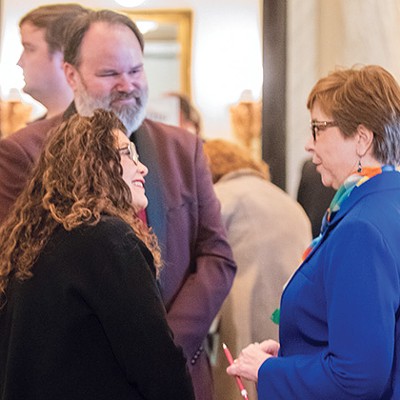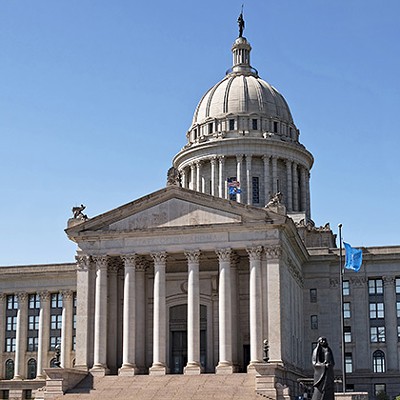Former Secretary of State and Chairman of the Joint Chiefs of Staff Colin Powell spoke to a capacity crowd at the University of Oklahoma Wednesday and answered some submitted student questions.
Powell spoke to students and others for about a half hour at Catlett Music Center's Paul F. Sharp Concert Hall. Overflow attendees were able to watch in adjacent room with closed-circuit television.
University President David Boren preceded Powell on stage. Powell commented on the relationship Powell and Boren had in Washington by calling him his "good friend who made my life miserable." As a senator representing Oklahoma, Boren was the chair of the Armed Services Committee while Powell was the chairman.
With a disarming, sometimes self-deprecating and easygoing pace, Powell touched on many subjects including his passion for wanting to help as he been helped and describing how the world has changed since he graduated from the City College of New York 50 years ago versus the world graduating students face today. He also emphasized the importance of international economies, energy issues and environmental concerns along with the uneven state of education in the U.S. He stressed how upsetting it is that nearly 50 percent of minority students are not graduating from high school.
Student questions ranged from who has influenced his life the most and his most defining moments to why the U.S.' worldwide approval rating has dropped and the differences between the first and second Persian Gulf Wars.
Comparing the two wars, he said the difference was the outpouring of support the U.S. received from other countries as well as the United Nations.
His most telling comments came, however, as he said the reason for the ongoing Iraqi occupation is that there were not enough troops present from the beginning. He backed off a few minutes later saying that he is "not a fortune teller" who could definitively say that if there two or three more times soldiers in Iraq at the time that the enormous challenges that crept up as the forces transitioned into being occupiers might not have made a difference. - Stefanie Brickman











